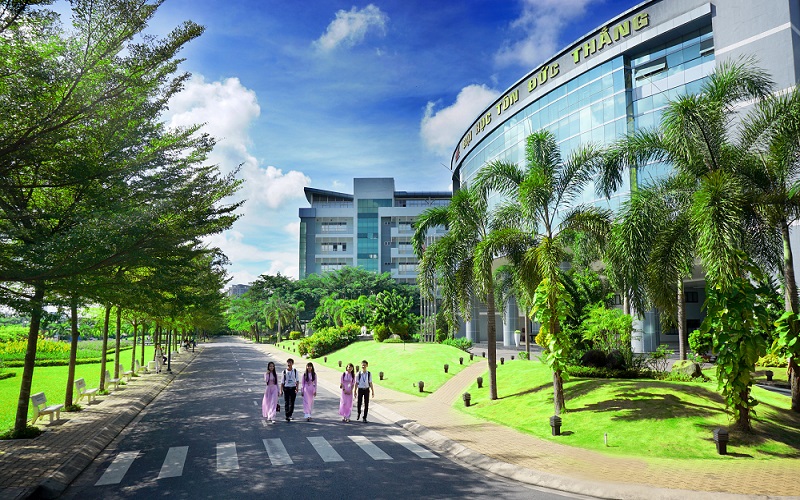Environmental Science High Quality
1.1 Program Introduction
The training program of High Quality Environmental Science is compiled according to the training framework of the University of Florida, USA, in the TOP 100 universities in the world.
Students are equipped with knowledge about water - gas - solid waste environmental treatment systems, environmental ecology and resources, biodiversity conservation, natural resource management, environmental management, etc. environmental law, and accompanying administrative documents. During the learning process, students can practice in laboratories, participate in study sessions in the field, at enterprises; participate in the implementation of topics and projects with lecturers and businesses.
Because the program is taught in English from the first year, students have many opportunities to approach, exchange, and participate in all international events taking place at the Faculty; participating in a study with international student groups and many other academic activities, helping students improve their knowledge, foreign language ability and professional practice skills.
1.2 What makes a high-quality program different?
The difference of the High Quality program from the regular training program is that students will be taught in English, for at least 70% of the total study time, right from the first year for the basic subjects. Specialized subjects will be taught entirely in English by experienced and enthusiastic domestic and foreign lecturers. In which, 30% - 40% of the course duration will be allocated for practical study trips at enterprises and factories, in order to help students early access to reality and improve professional practice skills.
In addition, during their study at the University, students can participate in all seminars, conferences, discussions, and scientific exchanges with professors, researchers, and experts from all over the world. The high-quality program also organizes a career course and a graduate internship semester for overseas students within the framework of cooperation programs between the Faculty and partners in Thailand, Taiwan, the Republic of Korea, Czech Republic.
About the training organization: small class size (30-35 students), hands-on learning in laboratories/workshops, theoretical classrooms equipped with sufficient teaching equipment, dynamic learning environment, a team of mentoring teachers, teaching assistant teachers to support students in the learning process; a team of good domestic and foreign lecturers, closely monitor the learning process of students in a professional and enthusiastic manner.

